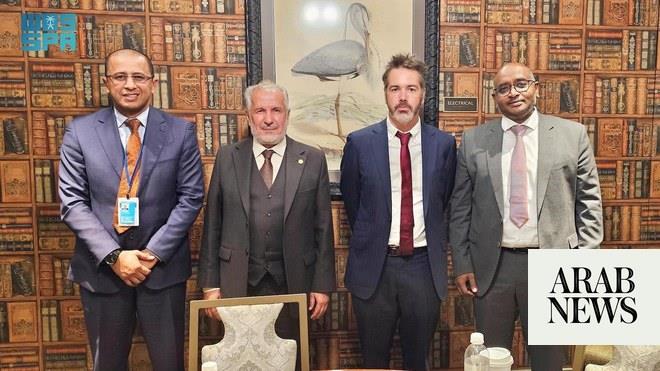
MSF has treated more than 200 children in the past two weeks for serious malnutrition in Gedeo
MSF field coordinator Markus Boening said some parents were arriving at their clinics with children just clinging to life
ADDIS ABABA: Doctors Without Borders (MSF) warned Thursday that severe malnutrition was gripping parts of southern Ethiopia where ethnic violence has driven nearly a million people from their homes into squalid camps.
MSF has treated more than 200 children in the past two weeks for serious malnutrition in Gedeo, where fresh violence in recent weeks between ethnic minorites has forced families to flee.
MSF field coordinator Markus Boening said some parents were arriving at their clinics with children just clinging to life, suffering from the worst form of malnutrition.
“Many of them arrive much, much too late... we lost some children because of that,” he told AFP, without providing an overall figure for those who have died.
Violence between Ethiopia’s largest minority, the Oromo, and the Gedeo people has plagued the southern Gedeo and West Guji zones since April 2018, shortly after the inauguration of Prime Minister Abiy Ahmed.
The fighting died down by the end of the year and some of the close to one million people displaced by the conflict began returning to their homes in Gedeo and West Guji, key coffee growing areas.
But an outbreak of fresh violence in March saw families again on the march, many leaving behind their only source of income as they crowded into fetid displacement camps.
“The situation in the camps is pretty dire, from my point of view, in terms of shelter, in terms of water and sanitation,” Boening said.
“It can become quite catastrophic.”
Elected by Ethiopia’s ruling party after more than two years of anti-government unrest, Abiy has announced popular reforms such as ending hostilities with neighboring Eritrea and welcoming banned groups back into the country.
But his first year in office was marred by violence between the Oromo and the Gedeo — among other ethnicities — as 1.8 million people fled their homes in 2018, the highest displacement rate on the planet.
Boening warned that those eking out survival in camps in Ethiopia’s south would encounter fresh hardship when the rainy season began in coming weeks.
“For the betterment of the situation, there’s definitely more help needed,” he said.










